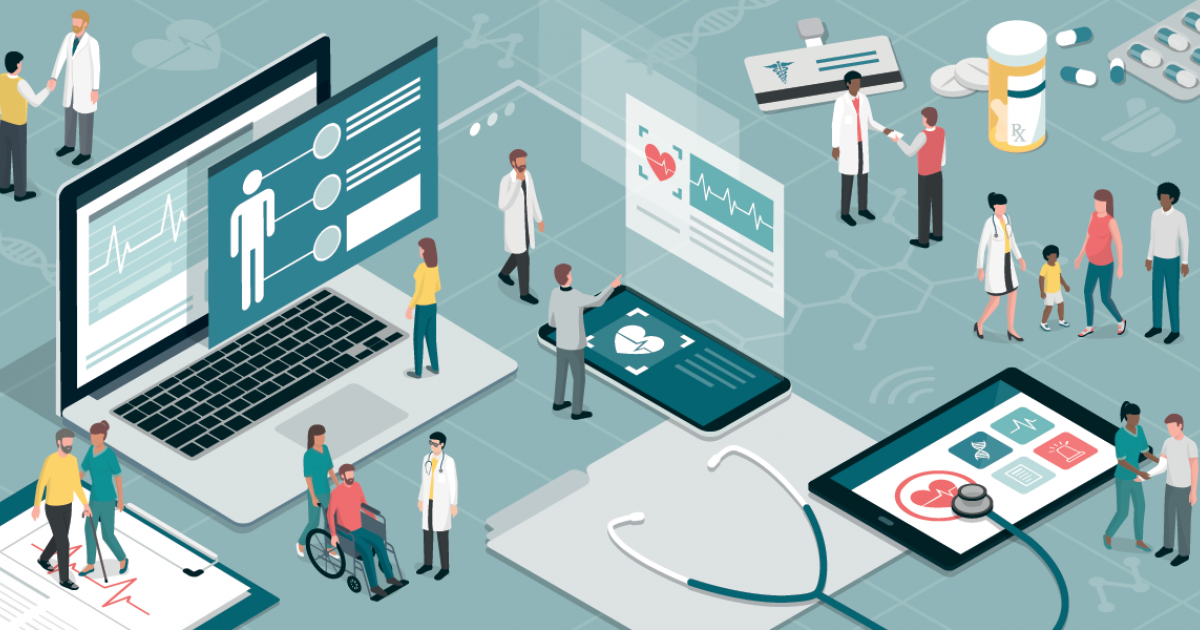Why artificial intelligence is Important in Healthcare
Natural Language Processing in healthcare is grounded in its unrivaled ability in interpreting complex and unstructured datasets.

Natural Language Processing is fast becoming a critical cog in the healthcare industry. The importance of applying or using Natural Language Processing (NLP) in healthcare is grounded in its unrivaled ability in interpreting complex and unstructured datasets and producing actionable intelligence. Natural Language Processing leverages well-developed machine learning algorithms to generate valuable intelligence and business insights. The healthcare industry produces huge volumes of data every single day. The data is in varying forms including visuals, text and speech. Harnessing the power of Natural Language Processing can open up opportunities by reducing the healthcare industry investment in human capital and save time.
One of the biggest challenges in the healthcare industry so far has been the inability of healthcare professionals like physicians and nurses to give undivided attention to patients. This has been in a large part due to administrative duties like interpreting complex datasets and keeping records that take much of their time leaving little time for the patients. Clinicians have to ensure that all the important documentation is in order. To do this, they have always been forced to work extra hours. This often results in cases of psychological burnout. Natural Language Processing is proving to be valuable in solving this problem. Clinicians are now replacing typing and taking handwritten notes with voice notes. Natural Language Processing can accurately update records and interpret speech. This allows clinicians to record notes as they speak to patients. This technology is contributing immensely to healthcare quality by eliminating the duplication of effort and giving clinicians more time to devote to patients. Besides, it spares clinicians from psychological burnout enabling them to extend the best quality of care to the patients.
Clinicians need access to reliable information to make a proper clinical judgment. Most of the time they depend on doctors notes and diagnostic results to understand patient profiles and as a result, arrive at critical decisions on the best course of treatment for their patients. This explains why Electronic Health Record (EHR) has been an indispensable component of the healthcare industry. However, Electronic Health Records technology presents a major stumbling block. Most of the information stored in the EHR systems like doctors’ notes is in an unstructured format. Physicians face a problem while obtaining unstructured data from the Electronic Health Records for further automated analysis. However, Natural Language Processing has been effective in analyzing and interpreting clinical notes. Natural Language Processing is even more important when the information recorded in EHR is in a narrative format which could consume a lot of time during extraction.
Apart from improving the quality of care, Natural Language Processing enhances patient involvement in care. In recent decades, regulatory frameworks and healthcare industry practices have led to increasing the requirement for involvement of patients in their care. Healthcare organizations have introduced patients’ portals where patients can access their care information anytime they need to. This includes access to medical reports which helps them to keep tabs on their health status. However, this is easier said than done. Patient involvement in care faces serious roadblocks one being that patients are not always in a position to interpret medical reports. In that regards, practitioners can use Natural Language to interpret complex medical reports in forms that are understandable to patients.
The digital era is bringing forth cutting edge technologies like Natural Language Processing and blockchain into the healthcare industry. These transformative technologies hold the promise of changing the healthcare industry by enhancing quality, reducing cost and increasing patient involvement in care.
Learn More About Allganize's Technology
